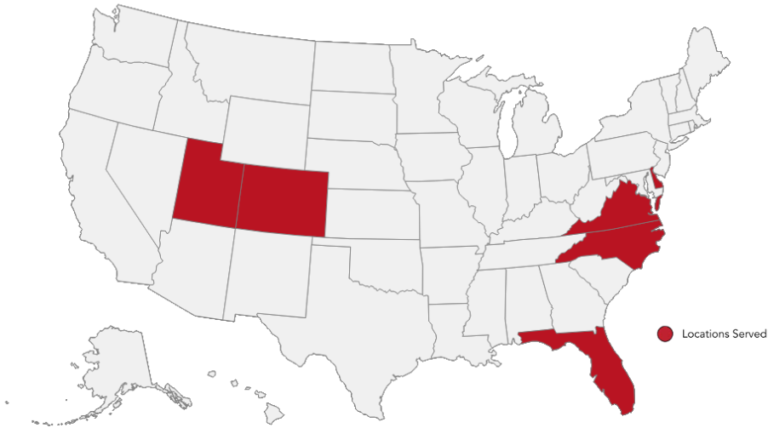Families Achieving Self-Sufficiency Together
Supporting disconnected adults and youth with disabilities in achieving financial self-sufficiency

About the Program
Families Achieving Self-Sufficiency Together (FASST), supported by the Disability Innovation Fund, assists adults with disabilities who are receiving or eligible to receive Temporary Assistance for Needy Families (TANF) and youth with disabilities aged 14-24 in their household. In addition, FASST provides services to youth with disabilities who are low income, housing insecure, in foster care, or involved in the justice system. Operating within Colorado, Delaware, Florida, North Carolina, Utah, and Virginia, FASST aims to assist individuals to achieve financial self-sufficiency by preparing them for competitive integrated employment. The program helps individuals overcome employment barriers, connect with Vocational Rehabilitation partners, and develop occupational skills, ultimately leading to financial stability.
Our program supports individuals to:
- Navigate and eliminate vocational and nonvocational barriers
- Connect with vocational and youth transition partners, training providers, and community employers for both short-term and career positions
- Gain occupational and/or employment readiness skills
- Gain financial capability leading to self-sufficiency and financial stability
Eligibility
Individuals must meet the following eligibility criteria:
- Have a disability that makes it hard to work without our help
- Adults must receive or be eligible to receive TANF benefits
- Be a youth (age 14-24) who is either low-income, housing insecure, in foster case, or involved in the justice system.
- Must be eligible to work in the United States
- Must be available to receive services in our service areas.
- Household income must meet your state’s federal poverty level percentage.
For more information regarding the TANF program, please visit www.usa.gov/welfare-benefits. To determine your eligibility for our program, contact us.
FASST Referral Form
Areas We Serve
FASST supports disconnected adults and youth with disabilities across multiple states, including:
- Colorado: Denver-Metro Area, Adams, Arapahoe, Broomfield, Boulder, Denver, Douglas, & Jefferson Counties
- Florida: Hillsborough, Pinellas, Leon, Duval, Orange, Lake, and Osceola counties
- Northern Virginia: Arlington, Fairfax, Loudoun, Prince William, Spotsylvania, or Stafford counties, and the cities of Alexandria and Fredericksburg
- North Carolina: Cumberland, Hoke, Lee, Moore, Harnett, Robeson, and Bladen counties
- Utah: Davis, Box Elder, Weber, and Salt Lake counties
- State of Delaware

News and Updates
Contact
For more information on our FASST program, email us at FASST@servicesource.org, or call the program case manager for your state:
| Colorado | Coming soon |
| Delaware | 302-824-2743 |
| Florida | 407-312-7152 |
| North Carolina | 910-986-7549 |
| Utah | 801-662-8237 |
| Virginia | 571-262-9869 |
FASST Leadership Team
Lucas Halverson
Kathy Davis
Resources, Partnerships, and Materials
Resources
Partnerships
Materials
- FASST General Flyers
- FASST Youth Program Flyers
- FASST Referral and Inquiry Form
- Preparing to Apply for Vocational Rehabilitation
Disclaimer: The contents of this webpage were developed under grant H421F240144 from the U.S. Department of Education (Department). The Department does not mandate or prescribe practices, models, or other activities described or discussed in this document. The contents of this webpage may contain examples of, adaptations of, and links to resources created and maintained by another public or private organization. The Department does not control or guarantee the accuracy, relevance, timeliness, or completeness of this outside information. The content of this webpage does not necessarily represent the policy of the Department. This publication is not intended to represent the views or policy of or be an endorsement of any views expressed or materials provided by any Federal agency. (EDGAR 75.620)

